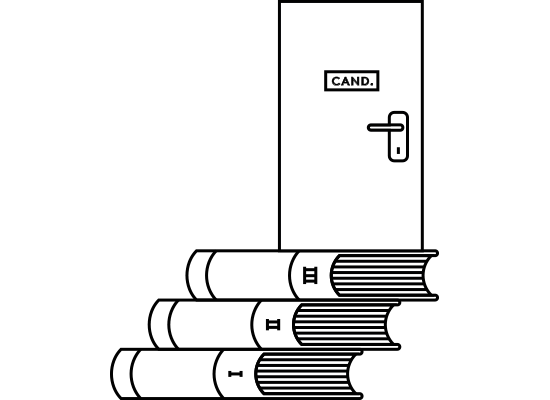Programme structure
The bachelor’s programme in Interactive Technology Engineering takes three years (6 semesters) and is followed by a two-year master’s programme (4 semesters).
As an Interactive Technology Engineer you will get to create technology solutions tailored for end users. During the programme you will be introduced to theory, methods, and tools which make you capable of developing solutions based on knowledge of current and future needs.
Each semester is based on a main theme, which will guide the semesters’ courses and project work. As soon as your studies begin, you will become part of a project group in which you will work with hands-on projects, which often focus on problems taken from companies.
The first semester introduces students to the fundamentals of programming and interaction design. Students will learn how to write object-oriented code while also building a mathematical foundation for technical problem-solving. The semester focus is on user-centered design, so students will dive deep into personas, scenarios, and prototypes to support user research. The semester culminates in a project where students collaborate with an external partner to address a real-world design challenge.
In the second semester, students will deepen their understanding of IT systems and software design. They will explore operating systems, data management, web technologies, and cybersecurity fundamentals. They will also learn how to gather software requirements and apply software design patterns to support scalable, maintainable code. Their mathematical skills are further developed, and they are introduced to cyber-physical systems, in which software interacts with the physical world. The semester project focuses on creating engaging digital solutions with a strong emphasis on user experience.
The third semester delves into the inner workings of computers and system architecture. Students will work with data representation, algorithms, and advanced software design. Their knowledge of cyber-physical systems is expanded with a focus on soft robotics and human-robot interaction. The semester project involves developing prototypes that integrate hardware and software, such as smart devices or robotic applications.
In the fourth semester, the focus shifts to learning technologies and immersive digital experiences. Students will work with digital teaching tools and educational theories, and explore virtual and augmented reality, focusing on the technical and creative aspects of developing immersive experiences. The semester project involves developing technologies for industrial training, creating platforms and simulations that support practical skill development.
The fifth semester offers students the opportunity to specialize through elective courses in areas such as welfare technology, user research and experimentation, programming for virtual and augmented reality, or generative AI. In addition, they participate in an interdisciplinary innovation project in which they develop a product with real-world potential, building skills in entrepreneurship and teamwork.
The final semester focuses on advanced web development, including web frameworks, databases, and back-end technologies. Students will also learn about project management and scientific methods for engineering, besides completing their studies with an independent bachelor’s project. This project allows them to apply their accumulated knowledge to design and implement a solution to a complex technological challenge.

